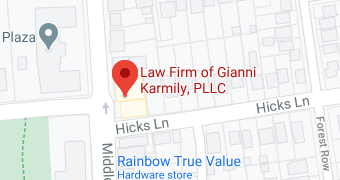Conspiracy is an interesting crime. If you don’t know what constitutes criminal conspiracy then you might just think it’s referring to those wild conspiracies such as the moon landing being a hoax. But while conspiracy theories like that share the word conspiracy, they are quite different from the actual crime.
To see what we mean, we’ll take a look at how criminal conspiracy is defined. This’ll allow us to get a full picture of the crime itself. From there we’ll look at the different degrees of conspiracy, which then allow us to look at the penalties for conspiracy as well.
What is Criminal Conspiracy?
Criminal conspiracy is the crime of agreeing to perform a crime for or with another party. If a person robbed a corner store and took off on their own, chances are the crime is simply a robbery. But if the robbery was agreed upon and outlined across multiple parties, such as a gunman working with a getaway driver, then a criminal conspiracy would have taken place.
Criminal conspiracy can be prosecuted as a NY State crime or a federal crime, depending on what crime was being committed. For example, a conspiracy to rob a corner store would certainly be handled locally by the Nassau County courts. But a criminal conspiracy to violate United States Federal Law or that goes across state lines, such as the Volkswagen emissions cheating scandal, can be charged as a conspiracy against the United States and thereby be federal. Note, a conspiracy doesn’t need to be against the United States to be prosecuted at the federal level, this is just an example.
As far as crimes go, prosecuting criminal conspiracy is a rather easy charge to prove. This is because there is no need to know what was said about the agreement to commit a crime but rather that this agreement had happened. In contrast, consider a murder charge. The fact that a homicide occurred is not enough for a conviction, as the circumstances of the homicide will be paramount in deciding what degree the crime should be charged at or if murder is even the right charge at all.
What are the Different Degrees of Conspiracy?
As with many crimes, criminal conspiracy can be charged at different degrees. These go from the less serious crime of conspiracy in the sixth degree, through to conspiracy in the first degree. Let’s take a look at the six different degrees of criminal conspiracy and see what separates them from one another:
- Conspiracy in the Sixth Degree: Covered under NY Penal Code 105.00, conspiracy in the sixth degree is committed when one party agrees to engage in criminal activity with another party or multiple parties. It’s a class B misdemeanor.
- Conspiracy in the Fifth Degree: Covered under NY Penal Code 105.05, conspiracy in the fifth degree happens when an individual agrees with one or more people to engage in criminal conduct or when an individual over eighteen agrees to engage in criminal conduct with someone under sixteen. Note that the agreement with one or more persons is for a felony crime, while conspiracy of the sixth degree is plainly stated as criminal conduct and so a misdemeanor would count. This is a class A misdemeanor.
- Conspiracy in the Fourth Degree: Covered under NY Penal Code 105.10, conspiracy in the fourth degree occurs when an individual agrees to perform a class B or class C felony with another party, or when an individual over eighteen agrees to commit a crime with one or more persons under sixteen, or when the planned crime is money laundering in the third degree. Conspiracy in the fourth degree is a class E felony.
- Conspiracy in the Third Degree: Covered under NY Penal Code 105.13, conspiracy in the third degree occurs when an individual over the age of eighteen agrees to commit a class B or class C felony with one or more individuals under the age of sixteen. It’s a class D felony.
- Conspiracy in the Second Degree: Covered under NY Penal Code 105.15, conspiracy in the second degree occurs when an individual agrees with one or more persons to engage in a class A felony. Conspiracy in the second degree is a class B felony on Long Island.
- Conspiracy in the First Degree: Covered under NY Penal Code 105.17, conspiracy in the first degree occurs when an individual over the age of eighteen agrees to commit a class A felony with one or more persons under the age of sixteen. Conspiracy in the first degree is a class A-1 felony.
What Are the Penalties for Conspiracy?
The penalty for criminal conspiracy depends on whether or not the crime in question was of a violent nature. Those that are will have steeper penalties than non-violent crimes.
- Sixth Degree: As a class B misdemeanor the possible penalties are fine, mandatory state surcharge, community service, issuance of an order of protection, probation, or incarceration in a local jail for up to three months.
- Fifth Degree: As a class A misdemeanor the possible penalties are the same as a class B with the exception of up to a year in a county jail or a split sentence with a period of probation. Also, the fines and community service hours given as punishment will be more severe as well.
- Fourth Degree: A non-violent class E felony can result in probation and/or sixteen months to four years incarceration. A violent class E felony can result in probation and/or eighteen months to four years incarceration.
- Third Degree: A non-violent class D felony can result in probation and/or a minimum of one to three years and a maximum of seven years incarceration. A violent class D felony can land two to seven years of incarceration.
- Second Degree: A non-violent class B felony will get a minimum of one to three years and a maximum of twenty-five years incarceration. If the intended crime was of a violent nature then it will get a minimum of five years and a maximum of twenty-five years incarceration.
- First Degree: A class A-1 felony can result in a life sentence.
What Should I Do if I’m Charged with Criminal Conspiracy?
The most important thing to do is to reach out to an experienced attorney such as those at the Law Firm of Gianni Karmily. There’s a lot on the line when facing a charge of criminal conspiracy, so you should always aim to get an attorney that’ll fight for your innocence.
To schedule a confidential case evaluation with the Law Firm of Gianni Karmily, PLLC, call our Great Neck office at (516) 630-3405 or our Hempstead office at (516) 614-4228.











